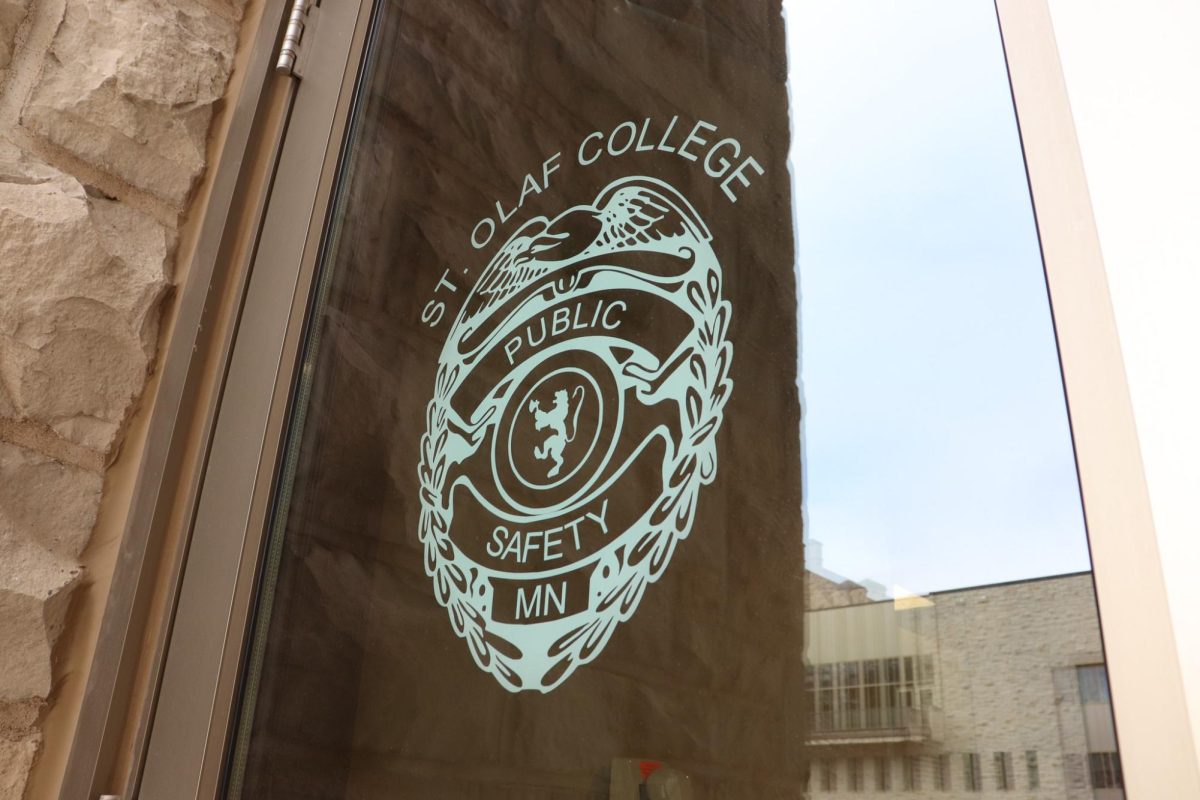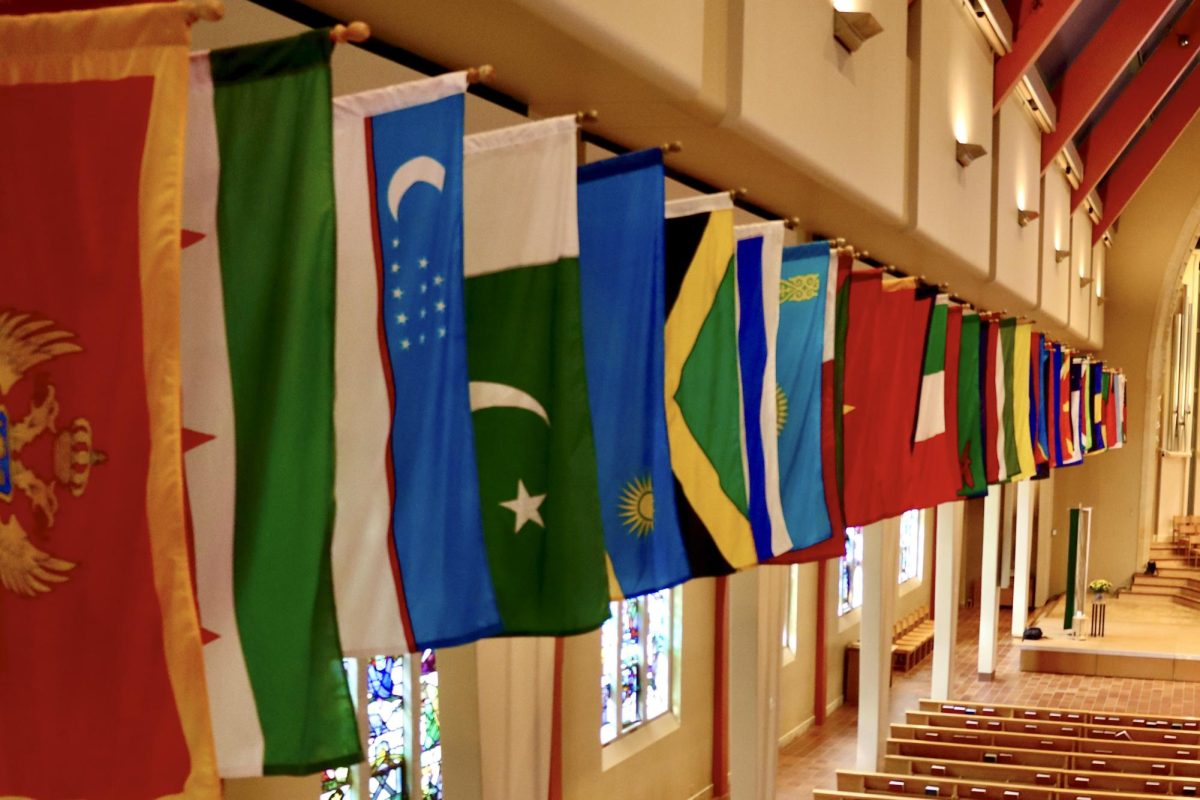The International Student Association held its annual International Awareness Week from Oct. 20 through 24. This year, one of the lectures focused on the international influence of sports.
Oct. 22 saw an intimate discussion about sports among students and professors from St. Olaf and Carleton College. The lecture was titled “More than a Game” and focused on the global nature of sports. Raffi Triggiano ’15, the event’s moderator, posed questions relating to the benefits, differences in strategies and effects of results on individuals versus teams in sports.
Professors of Philosophy Danny Munoz-Hutchinson and Gordon Marino, Professor of Political Science Joshua Anderson and Professor of Physical Education as well as Carleton’s head soccer coach Bob Carlson were the designated panelists.
Triggiano commenced the discussion with a general question regarding the origin of the panelists’ interest in sports and their athletic backgrounds.
Hutchinson, who started judo when he was five years old, said, “My parents were educated so my father got me into martial arts.” He spoke at length about the reasons for his commitment to the martial arts.
“It wasn’t just for the competitive aspect, but it was also for the philosophical pinning of martial arts,” he said.
Marino, who trained as a boxer, also agreed with the philosophical aspects relating to sports but emphasized his need to protect himself while growing up.
“I wanted to feel safe because I grew up around violence,” he said. He also talked about the fighting techniques and strategies he learned in boxing.
“I had confidence in myself when physical altercations arose,” Marino said. “But I was analytical and pragmatic when protecting myself from violence inside and outside of the ring.”
It was immediately clear why Bob Carlson became a coach; his enthusiasm for all types of athletic activity was quite evident.
“I loved sports. It is what I did when growing up and it is currently what I do,” said Carlson.
Carlson went on to discuss his work as Carleton’s soccer coach.
“I am intensively competitive and have turned that into my passion and work,” he said. He made to sure point out that he is able to see the simple beauty in sports, saying, “In all the competitiveness, I actually remember that playing sports is for the fun.”
Professor Joshua Anderson brought both a love of athletics and a social scientist’s perspective to the discussion.
“I got the pursuit of excellence out of playing sports,” said Anderson.
Anderson brought up the positive aspects of the sometimes punishing nature of competitive athletics. As a former football and frisbee player as well as a fan of Formula One racing, Anderson understands the rigorous and sometimes dangerous nature of competition. In his opinion, however, it is the diligence and dedication required to excel at sports that makes them so unique and special. Sports require dedication and sometimes suffering on the player’s part, but this contributes to the artistic value of athletics.
“You get to see excellence on display,” Anderson said. Anderson talked about being able to use his difficult experiences as a football player to excel in academia. After the panelists shared their experiences, Triggiano pointed out that some panelists specialized in individual sports while others participated in team sports. This led to his second question, “What are the differences in the experiences for individual and team sports like boxing and soccer?”
“The way you deal with fear and anxiety varies,” Marino said.
He compared his boxing and football experiences. He mentioned that though boxing and football are very different sports, both sets of athletes must be brave to be successful. Marino credited his involvement in boxing for his ability to attack life obstacles head on.
“You got to be brave,” said Marino. “In life, there are so many times you will take huge hits. Being brave and courageous makes those hits much more bearable.”
Hutchinson agreed with Marino’s take on bravery and drew a comparison between his sport judo, and boxing.
“Both [types of athletes] have to be brave enough to expose their backs,” he said. Hutchinson discussed judo techniques that involve a fighter letting down his or her guard momentarily in order to achieve victory. He reiterated Marino’s sentiments, stating, “Learning to be courageous and standing up in dangerous situations are skills learned through sports.”
Anderson then brought up the link between economic inequality and athletics.
“The reasons people go into sports are oftentimes based on their socioeconomic status,” Anderson said.
He linked the likelihood of someone joining a strength-building sport to lower economic status. He went on to say that poor individuals find the need to build their self-esteem and reassure themselves of physical strength.
“Building physical strength allowed these individuals to gain emotional stability,” Anderson said.
With the topic of class came the discussion about social mobility and meritocratic attainment in sports.
“Sports are more meritocratic than actual life,” Marino said. He acknowledged the fact that players are more likely to be rewarded for their hard work through endorsements, pay raises and team transfers. This is unusual in today’s society, where hard work is not always valued properly due to numerous external factors.
Hutchinson used judo as an example to comment on the motivators behind the commercialization of sports.
“The more sports become commercialized, the more rules you get. But these rules are not to make the sport safer; it is for entertainment,” Hutchinson said. He referenced judo having more rules than it has in the past. These rules made the moves more complicated and visually pleasing. As a result, there has been a significant increase in viewership and people are making more money from the sport now than ever before.
During the last 10 minutes of the event, Triggiano allowed the audience to ask questions. The panelists answered inquiries that tackled ethics and the controversial issue of Division 1 athletics and their vast profits that do not benefit the athletes themselves.
“It is a plantation because it is built upon the work of black men,” Anderson said. College sport teams, specifically football and basketball, have a high percentage of African-American athletes. These Division 1 schools use their players as marketing tools to increase revenue stream, but the players are not allowed to make money as a result of their talents until they leave college.
“These Division 1 schools justify their actions with the fact that these black men are given a free education,” Carlson said.
The International Student Association meets every Sunday at 6:00 p.m. in Valhalla. For more information about the club, contact the co-chair, Theresia Kinanti Dewi at [email protected].





